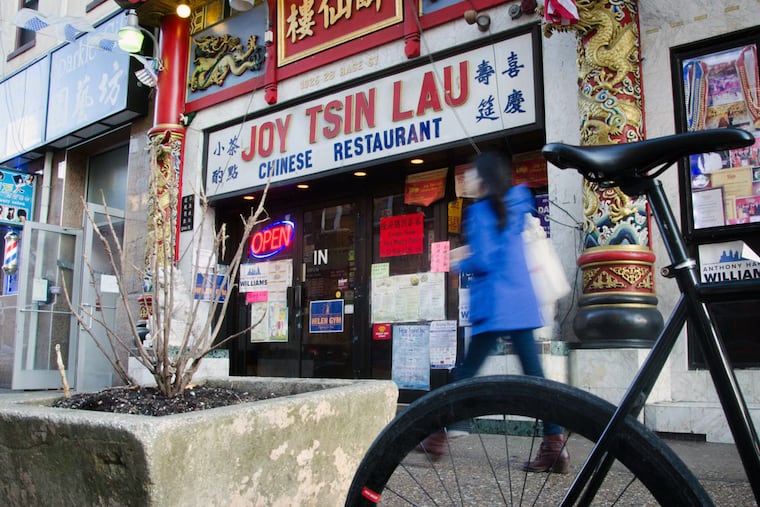Phila. health department gets power to shut dirty eateries
For years, whenever the Philadelphia health department discovered a restaurant with hygiene problems that posed a public threat, it has ordered the business to shut down and clean up.

For years, whenever the Philadelphia health department discovered a restaurant with hygiene problems that posed a public threat, it has ordered the business to shut down and clean up.
And for years, restaurants have been able to ignore those cease-and-desist orders.
That's set to change in March.
An agreement signed by the health agency and the Department of Licenses & Inspections will give health inspectors the power to shut down problem eateries, said Palak Raval-Nelson, director of Environmental Health Services.
"For so long, we've only had a water gun to squirt, and now we're getting an Uzi," said Raval-Nelson.
As the policy stands now, if inspectors find inadequate refrigeration, an infestation of mice, or spilled sewage, they can do little more than ask L&I to step in.
"Our authority has been limited to asking for a voluntary closure," Raval-Nelson said.
Nine times out of 10, proprietors agreed to close, she said. Those who didn't were referred to L&I.
Under the new agreement, in the works since July 2015, health officials can act on their own, said Chief Deputy City Solicitor Andrew Ross.
"It makes the process more efficient," Ross said. "We're not growing any new teeth, we're just moving them from one mouth to the other."
The discovery of vermin will trigger an automatic 48-hour closure, Raval-Nelson said.
"It's very difficult to get rid of vermin in less time," she said. "You can't go running around stomping on the mice and roaches."
Though Philadelphia has resisted issuing letter grades for restaurant sanitation, it has made health reports public through the city's website. (They are compiled at philly.com/cleanplates.) Public attention to the issue was heightened early last year when about 100 lawyers and students were sickened after eating at Joy Tsin Lau, a frequently cited restaurant in Chinatown.
Raval-Nelson said the rollout of the new power was delayed because of the papal visit and the change in mayoral administrations.
For multiple violations that pose an imminent health hazard, an inspector will contact a supervisor for permission to issue voluntary closure orders.
If a supervisor approves, the inspector will notify the owner, who has a chance to close until the violations are corrected. If the owner doesn't volunteer, however, the inspector will issue the cease-and-desist order.
Police may be called if the restaurant refuses to comply, Raval-Nelson said.
Health officials also will be able to target what Raval-Nelson called "frequent fliers," restaurants that fail repeated inspections, get two consecutive clean write-ups, and then start the cycle of failure again, she said.
Inspectors, called sanitarians, will be trained in the new policies in early March.
Since Jan. 1, about 40 Philadelphia eateries have been on the receiving end of a cease-and-desist order. Nearly all were allowed to reopen after the violations were corrected.
Most orders haven't been issued for filthy conditions. McGlinchey's, the renowned Center City dive bar, and Kauffman's, at the Reading Terminal Market, were among dozens issued one since the new year began for not having a food-safety-certified staff member on duty. In the future, it will take repeated such violations to merit a cease-and-desist order.
Other restaurants have been cited for a litany of violations. The Midtown II Restaurant, a Center City diner, was issued a cease-and-desist on Feb. 3 for conditions that included fly larva crawling in a bucket of coleslaw, employees touching food with bare hands, and improperly refrigerated food.
The Cosi restaurant at 12th and Walnut Streets picked up its second cease order in as many years on Feb. 2, this time for having improperly refrigerated food, mouse droppings in contact with sandwich wrap, and additional items.
A complete list of eateries that have been issued cease-and-desist orders this year can be found here.
215-854-2796@samwoodiii